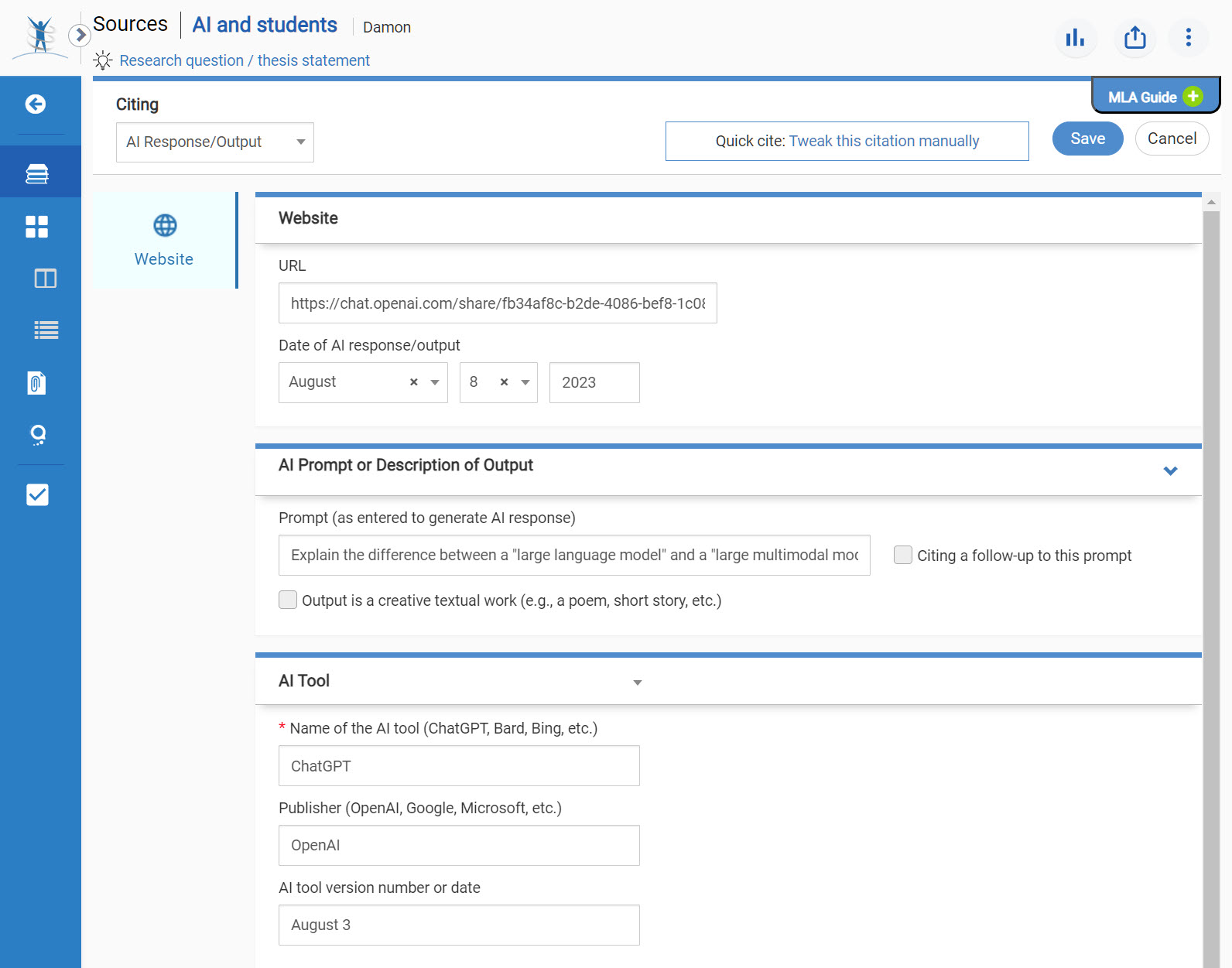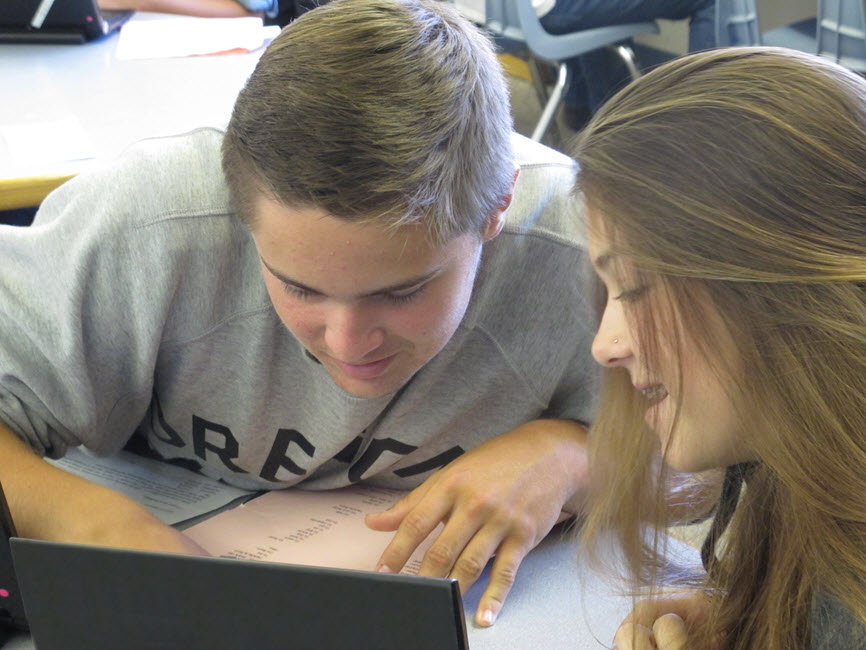Hope you’ve all had a great summer and are looking forward to a productive 2023-24 school year!
Over the past several months, there are two features that have been requested more than any other. Watch for the news about #1 in tomorrow’s post, but today we’re featuring #2 — citations for AI tools like ChatGPT and Bard. So without further delay, ChatGPT will introduce the new feature:

OK, well that was horrible!
And it’s true — depending on the tool and the underlying LLM (large language model) used, the prompt’s syntax, the topic’s currency, and other factors, the output of an AI tool can range from helpful to useless. But what is certain is that this school year, students will be using AI in a variety of ways — not just to inform their research, but also to spark creative ideas, understand topics from different viewpoints, visualize data, analyze complex literature and documents, and more. So citing the contributions of AI in their research will be essential.
Have the style guides weighed in on AI citation yet?
While MLA, APA and Chicago styles haven’t published new style guides in print since the explosion of AI in late 2022, all three have posted preliminary advice via online blog posts and Q&A responses. But it is important to know that they’ve also made a multitude of edits and corrections to these original posts based on feedback from their readers… and from us, of course! For example, APA and Chicago based their original instructions on the fact that AI prompts and their outputs were not retrievable because there was no shared/public URL. However, tools like ChatGPT and Bard quickly added that feature. As the AI tools evolve, you can expect a pattern of fast changes leading to updates in how we cite them.
Current advice from MLA, APA and Chicago styles is linked below. You can be confident that we’ll be keeping a close eye on AI advances and these recommendations, and that NoodleTools forms and help text will reflect those changes promptly.
MLA:
https://style.mla.org/citing-generative-ai/
APA:
https://apastyle.apa.org/blog/how-to-cite-chatgpt
Chicago:
https://www.chicagomanualofstyle.org/qanda/data/faq/topics/Documentation/faq0422.html
https://www.chicagomanualofstyle.org/qanda/data/faq/topics/Documentation/faq0423.html
How do students cite AI responses in NoodleTools?

Students can find the new option under Website > AI Response/Output in the source selection window.

The form allows a student to cite the AI tool itself, or to cite a specific prompt/output. We’ve incorporated detailed help into each field so that students know exactly what to provide.
The forms for each style are similar but not identical. For example, only MLA distinguishes between an informational response and a creative textual work composed by AI, such as a poem.
APA and Chicago also discuss conditions where a student might cite a specific AI output only in-text (or in a footnote). So NoodleTools provides clear instructions about that as well.

When reviewing a citation, the AI prompt and response is one click away if the student has provided a shared URL. Remember to use the Assignment Inbox to view student projects and provide feedback directly on their work.
